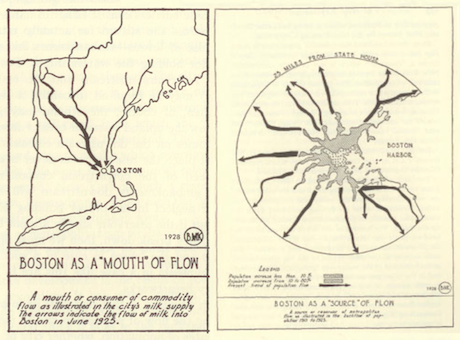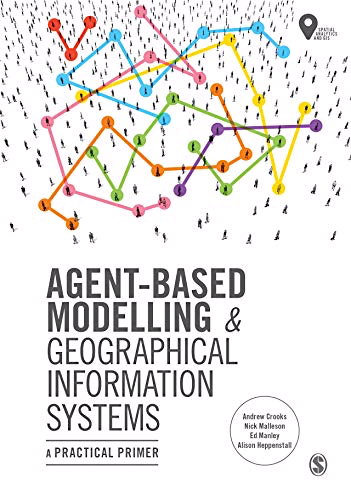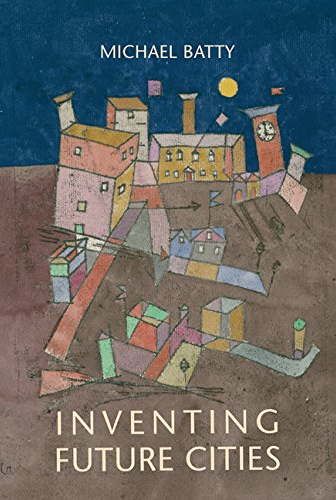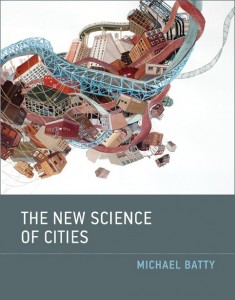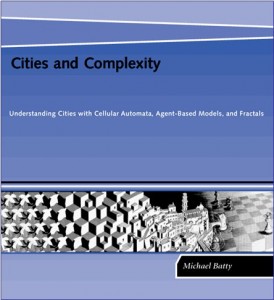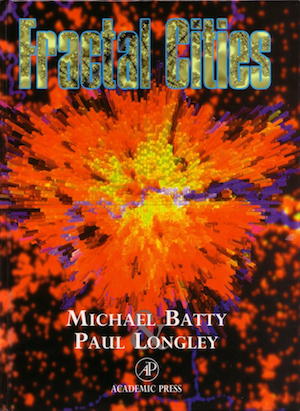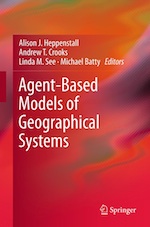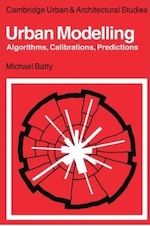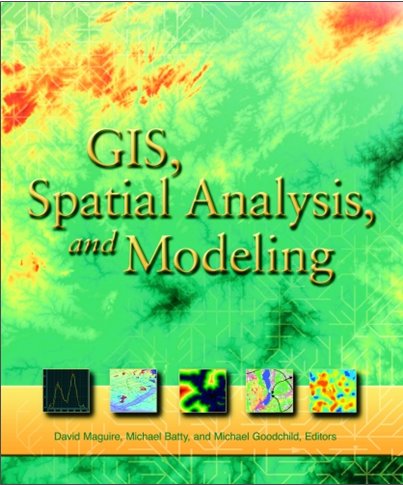“The city is not only a community, it is a conflux. ….The real city, as a center of industry, is a conflux of streams of traffic; as a center of culture, it is conflux of streams of thought.” So wrote Benton MacKaye in 1928 in his book The New Exploration: A Philosophy of Regional Planning. When I sent a copy of my own recent book The New Science of Cities to my erstwhile colleague and old friend Lionel March, he quickly scowered it and said: “I see in your Preamble that you cite Castells’ ‘space of flows’ and that your approach makes much of flows and networks. I immediately turned to your bibliography to search for the name Benton MacKaye. It is not there! The author of The New Exploration (1928) is my hero of metropolitan/regional development. I’m sure you know of him”.
Indeed I do know of Benton Mackaye from my reading of Lewis Mumford and of the history of regional planning and in passing references from commentators on Patrick Geddes’ work. But this was mainly when I was a student in the 1960s and I don’t think I have heard much of him since. I had never read his work or even rooted out his book but when Lionel reacted to my book, I was working my way through Don Kruekeberg’s edited collection The American Planner and was about to start reading the chapter by Thomas on Mumford and Mackaye which I then did. Since then I have retrieved The New Exploration from the UCL Library stacks and devoured it.
Amazing that I did not pick up on his focus on flows as the key explanatory force in the evolution of urban society and metropolitan life. MacKaye’s book is a little quirky and the language is old-fashioned – how could it not be as he was three generations before my time – but the logic is unassailable. He talks of the development of urban society (in America) as first an outflow in the 19th century from the small pockets of colonial urbanity established in North America in the 17th and 18th century. Then he talks of the reflow that is a reinforcement of these patterns of migration with the coming of new technologies, largely steam and the railroad. And then comes the inflow when rural dwellers are attracted to the city as the cathedral of commerce and cities are overwhelmed by population and traffic. And then he defines the backflow as the reverse process of decentralization which we now know as sprawl.
Amidst all this he fashions a contained vision of a future urban world which is consistent but considerably more intelligible than the green-belt-garden-cities movement which was a key construct in urban planning during the time when he was writing. In a way, his view of ‘cities evolving’ is one of ‘flows evolving’ and indeed it is consistent with much of what I write in my own book. But it is more than this in that MacKaye’s ideas should be brought right up to date with new technologies of information which are now dominating the city. In fact globalization is another set of flows – outflows which have operated during the last 50 years and in away MacKaye’s vision of many kinds of flow have been widely elaborated and intensified since he wrote his prescient work. The idea of flow being the balance or the fulcrum, indeed a tension, between the indigenous natural world and the new artifactual world of the metropolis is key to his vision of planning. In a way he does in his book what I do not do in mine which is link this kind of science to planning in a rather natural way.
As a last note on his important and oft forgotten (at least by me) contributions, he also suggested that we should ‘visualize’ when we plan – in fact throughout his book he uses the world visualize and visualization in the way we use it today in the digital world but it is more than this because he suggests that planning is a synoptic activity in which the visualization of flows is key to our understanding, and that understanding is the prerequisite to molding the future. Worth reading and when I write again on flows, his work will be uppermost in my mind.

